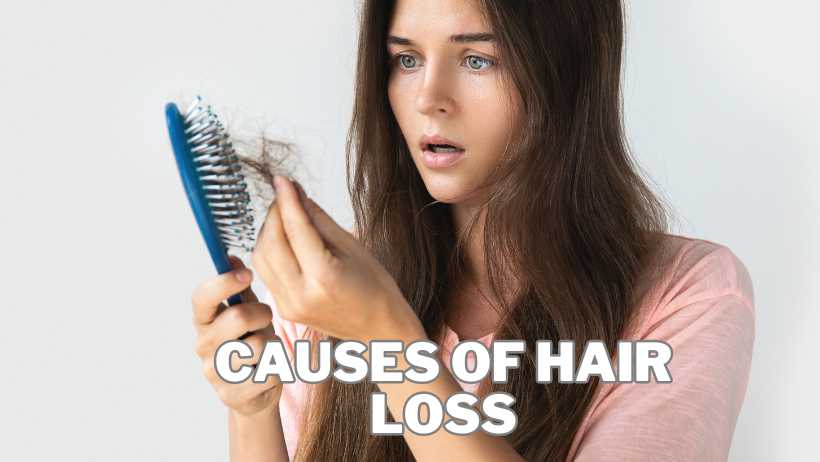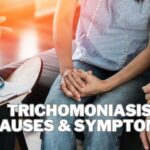
Discover how certain progestins in birth control can cause hair loss. Learn about androgenic effects, the role of DHT, and alternative options.
Are you experiencing hair loss and suspect that your birth control may be the culprit behind it? Understanding the androgenic effects of certain progestins on hair loss can help shed light on this issue. Some types of hormonal birth control contain progestins that have stronger androgenic effects, which can increase dihydrotestosterone (DHT) levels.
This hormonal disruption can disrupt the hair growth cycle and lead to thinning hair. Progestins like norethindrone, norgestrel, and levonorgestrel have the highest potential to trigger hair loss. However, progestin-only pills may carry a greater risk because they lack estrogen, which counteracts the androgenic effects.
If you’re concerned about hair loss caused by your birth control, it’s best to consult your doctor. They can determine the underlying cause and suggest alternative options. Hormone-free birth control methods, such as condoms or copper IUDs, may be a viable solution to reduce the risk of hair loss.
However, if the hair loss persists even after switching to non-hormonal birth control, it’s advisable to seek further treatment options from a dermatologist.
Understanding the Androgenic Effects of Certain Progestins on Hair Loss
Hair loss is a common concern for many individuals, and it can often be attributed to various factors such as genetics, age, and hormonal changes. In some cases, certain types of hormonal birth control can also contribute to hair loss. Specifically, the androgenic effects of certain progestins have been found to play a role in this issue. By understanding the mechanisms behind these effects and exploring alternative birth control options, you can make informed decisions regarding your health and hair.
Types of Hormonal Birth Control and Hair Loss
Hormonal birth control methods, such as oral contraceptives, patches, and intrauterine devices (IUDs), utilize synthetic hormones to prevent pregnancy. These hormones, including estrogen and progestins, work to regulate the menstrual cycle and inhibit ovulation. While these methods are highly effective in preventing pregnancy, they can also have potential side effects, including hair loss.
Androgenic Effects of Progestins on Hair Loss
Progestins are synthetic versions of the hormone progesterone and are a key component of many hormonal birth control methods. Some progestins have been found to have androgenic (male hormone-like) effects on the body. These androgenic effects can disrupt the hair growth cycle and lead to hair thinning in susceptible individuals. Androgens, such as dihydrotestosterone (DHT), can bind to androgen receptors in hair follicles, leading to miniaturization of the follicles and eventual hair loss.
Dihydrotestosterone (DHT) and Hair Growth Cycle
To better understand the androgenic effects of certain progestins, it is important to familiarize yourself with the hormone dihydrotestosterone (DHT). DHT is a potent androgen that is derived from testosterone in the body. It plays a significant role in the hair growth cycle, particularly in individuals susceptible to hair loss. DHT can shorten the hair follicle’s growth phase, known as anagen, leading to shorter and thinner hairs over time.
Progestins with Strong Androgenic Effects
Not all progestins have the same level of androgenic activity. Some progestins, such as norethindrone, norgestrel, and levonorgestrel, have been found to have stronger androgenic effects compared to others. These progestins have a higher potential to increase DHT levels in the body, further contributing to hair loss. It is important to note that individual responses to progestins can vary, and hair loss may not be experienced by everyone using these hormones.
Progestins Norethindrone, Norgestrel, and Levonorgestrel
Among the progestins with stronger androgenic effects, norethindrone, norgestrel, and levonorgestrel are commonly found in various hormonal birth control methods. These progestins have been associated with an increased risk of hair loss due to their androgenic properties. If you are using a birth control method containing these progestins and notice hair thinning or excessive shedding, it may be worth speaking to your healthcare provider about alternative options.
Progestin-Only Pills and Hair Loss
Progestin-only pills, also known as mini-pills, are a type of hormonal birth control that only contains progestins. Unlike combination birth control pills, which include both estrogen and progestins, progestin-only pills have a higher potential for hair loss due to the absence of estrogen. Estrogen is known to counteract the androgenic effects of progestins, and its absence can lead to a higher risk of hair thinning. If you are considering progestin-only pills, discuss the potential hair loss risk with your healthcare provider.
Estrogen and Counteracting Androgenic Effects
Estrogen plays a vital role in hair health by counteracting the androgenic effects of progestins. It can help to maintain the thick and healthy appearance of hair by inhibiting the conversion of testosterone to DHT. Estrogen also lengthens the anagen phase of the hair growth cycle, promoting longer and stronger hair growth. If you are using a birth control method that lacks estrogen, the androgenic effects of progestins may not be effectively counteracted, increasing the risk of hair loss.
Consulting a Doctor for Hair Loss Related to Birth Control
If you suspect that your hair loss is related to your birth control method, it is essential to consult a doctor who specializes in reproductive health or dermatology. They can assess your individual situation and help determine the underlying cause of your hair loss. This may involve conducting comprehensive diagnostic tests to rule out other potential factors contributing to hair loss. Your doctor can also provide guidance on alternative birth control options that may be better suited to your needs.
Alternatives to Hormonal Birth Control
For individuals experiencing hair loss or concerned about the potential risks associated with hormonal birth control, there are alternative options available. Non-hormonal methods, such as barrier methods like condoms or copper IUDs, can provide effective contraception without the androgenic effects of progestins. These methods work by preventing sperm from reaching the egg, eliminating the need for synthetic hormones. Discuss the possibility of switching to non-hormonal birth control with your healthcare provider.
Non-hormonal Birth Control and Reducing Hair Loss
Switching to non-hormonal birth control may help reduce the risk of hair loss associated with hormonal methods. These non-hormonal options do not disrupt the hormonal balance in the body and, therefore, do not contribute to the androgenic effects that can lead to hair thinning. However, it is important to remember that hair loss can have various underlying causes, and if your hair loss continues after switching to non-hormonal birth control, it may be necessary to consult a dermatologist for further evaluation and treatment.
Consulting a Dermatologist for Hair Loss Treatment
If you are experiencing persistent hair loss even after switching to non-hormonal birth control, consulting a dermatologist who specializes in hair loss can provide valuable insights and treatment options. Dermatologists have expertise in diagnosing and treating various hair loss conditions, including those related to hormonal changes.
They can evaluate your specific hair loss pattern, lifestyle factors, and medical history to tailor a treatment plan that addresses your unique needs. Treatment options may include medications, topical treatments, or advanced procedures like hair transplantation.
In conclusion, understanding the androgenic effects of certain progestins on hair loss is crucial for individuals using hormonal birth control methods. Progestins with stronger androgenic effects, such as norethindrone, norgestrel, and levonorgestrel, can contribute to hair thinning by increasing DHT levels and disrupting the hair growth cycle.
Progestin-only pills, which lack estrogen, may have a higher risk of hair loss. Considering alternative birth control methods and consulting healthcare professionals can help mitigate the risk of hair loss and ensure informed decisions regarding contraception and overall hair health.










